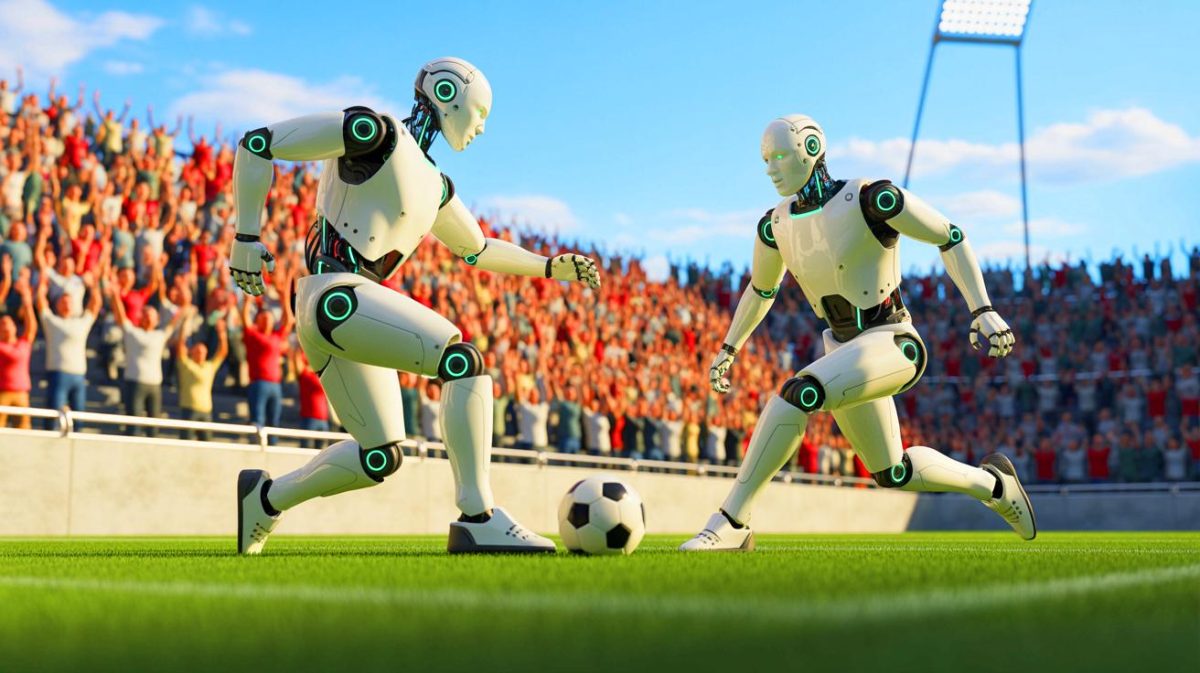| IN A NUTSHELL |
|
The world of robotics is set to capture global attention as humanoid robots prepare to compete in the World Humanoid Robot Games in Beijing. Scheduled for August 15 to 17, this event will showcase robots in various athletic competitions, with soccer taking the spotlight. The tournament marks a significant step in China’s ambitious plans to advance AI and robotics. Following the RoboLeague held in June, where robots played sports for the first time, this new event promises to be a groundbreaking spectacle. With teams from around the world, including the United States, Brazil, Germany, and Portugal, the competition highlights the rapid advancements in robotics technology.
The Upcoming Tournament and Its Participants
The upcoming World Humanoid Robot Games promises to be a landmark event in the field of robotics. Following the RoboLeague, which served as a precursor, anticipation is high for the main event. The tournament will feature 30 teams from various countries, showcasing the global reach and interest in robotic competitions. Among the participants is the Shanghai Team from China Agricultural University, known for their impressive performance at the RoboCup in Brazil.
These robots, designed for five-a-side soccer matches, are equipped with advanced visual sensors. These sensors enable them to locate the ball and navigate the field autonomously. The ability to recover from falls and resume play demonstrates the sophistication of their programming. Despite the predominance of Chinese teams, each one employs unique programming and decision-making systems, ensuring diverse strategies and performances.
Enthusiasm and Innovation on Display
The excitement surrounding the tournament is palpable, particularly among participants and organizers. Luo Changsheng from Tsinghua University expressed his enthusiasm, highlighting the significance of competing on home soil. The event offers an opportunity to showcase innovative algorithms and advancements in robot programming.
Changsheng detailed the use of imitation learning as a key method in programming the robots. This approach involves first observing human movements and then simulating thousands of iterations to perfect the robots’ skills. Such techniques allow the robots to mimic human actions like dribbling, kicking, and shooting, bringing them closer to human-like performance on the field. The emphasis on research and development underscores the broader implications of these competitions in advancing AI technology.
The Broader Implications of Robotic Competitions
While some may view these robotic competitions as mere entertainment, industry experts recognize their potential for advancing AI capabilities. The sight of robots playing soccer may seem amusing, yet it serves a vital purpose in testing and refining their skills. The ability to recover from collisions and continue playing is a testament to the progress made in robotics.
Critics who dismiss the event as a gimmick overlook the valuable insights gained from such competitions. Soccer provides a challenging environment to test AI, requiring real-time decision-making and adaptability. The lessons learned can be applied to various fields, from autonomous vehicles to industrial automation, highlighting the broader impact of these technological advancements.
The Future of Robotics and AI
The World Humanoid Robot Games represents a significant step in the evolution of robotics and AI. As humanoid robots take center stage, the event offers a glimpse into the future of technology and its potential applications. The ability of robots to perform complex tasks, adapt to changing environments, and interact with humans is rapidly advancing.
As we witness these developments, questions arise about the future integration of AI into everyday life. How will these advancements shape industries, labor markets, and society as a whole? The potential for robots to perform tasks once deemed uniquely human is both exciting and challenging, prompting a reexamination of our relationship with technology.
As the World Humanoid Robot Games approach, the attention of technologists, enthusiasts, and the general public is firmly fixed on Beijing. The event not only highlights the progress made in robotics but also raises important questions about the future of AI in our lives. How will these advancements continue to transform our world, and what ethical considerations must be addressed as we embrace this technological frontier?
Did you like it? 4.5/5 (24)






Est-ce que les robots vont remplacer les humains dans tous les sports ? 🤔
Wow, c’est incroyable de voir jusqu’où la technologie peut aller ! 👏
Les robots peuvent-ils vraiment dribbler comme Messi ? Je suis sceptique.
Merci pour cet article fascinant ! Je suis impatient de voir le tournoi.
Ça m’inquiète un peu, et si les robots devenaient trop performants ? 😟
Les robots sont-ils programmés pour comprendre les règles du jeu ?
Je ne savais même pas que ça existait ! Les temps changent vraiment.
J’espère qu’un jour, il y aura un match entre robots et humains. Ce serait épique ! ⚽
C’est une belle avancée pour la technologie, mais qu’en est-il de l’éthique ?